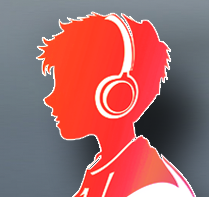
- HOME
- ABOUT VOICEOVERKIDS.AGENCY
- OUR INTERNATIONAL CHILDREN'S VOICES
- NEW: AI CHILD VOICE GENERATOR
- RECORDING STUDIO
- BLOG
- CONTACT
VoiceOverKids
.agency
International Child voice over casting agency & studio
Real child voice overs!

JAPANESE (JAPAN) KIDS VOICE OVERS I VOICE CASTING SAMPLES

Kasuma
Sound age 5-7

Taichiru
Sound age 7-10

Sora
Sound age 7-10

Hiyori
Sound age 9 -12

Kenshin
Sound age 7 -11
Japan children voice overs. Japanese children voice over. Japanese voice talents. Japan Kid voice over. Japanese children boy voice over. Japanese children voice talents. Japan Kids voice talents. Tokio Nihongo children´s voice overs agency. Japan voice overs agency for children voice overs. Japanese Nihongo language children voice over rates. Japanese voice overs. Japan teenage voice overs. Japanese Kid voice actors. Japanese children voice over services. Japan child voice over actors. Japanese children's voice over agency
About the Japanese language
Japanese (日本語, Nihongo is an East Asian language spoken by about 128 million people, primarily in Japan, where it is the national language. It is a member of the Japonic (or Japanese-Ryukyuan) language family, and its ultimate derivation and relation to other languages is unclear. Japonic languages have been grouped with other language families such as Ainu, Austroasiatic, Korean, and the now-discredited Altaic, but none of these proposals have gained widespread acceptance.
Japanese is an agglutinative, mora-timed language with relatively simple phonotactics, a pure vowel system, phonemic vowel and consonant length, and a lexically significant pitch-accent. Word order is normally subject–object–verb with particles marking the grammatical function of words, and sentence structure is topic–comment. Sentence-final particles are used to add emotional or emphatic impact, or make questions. Nouns have no grammatical number or gender, and there are no articles. Verbs are conjugated, primarily for tense and voice, but not person. Japanese adjectives are also conjugated. Japanese has a complex system of honorifics, with verb forms and vocabulary to indicate the relative status of the speaker, the listener, and persons mentioned.